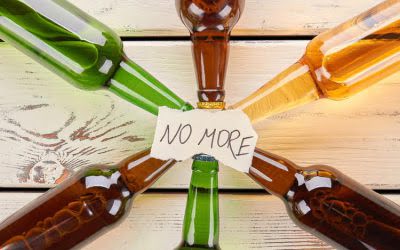Contact us at # 93-1010-9070
Sobriety Strategies: 13 Tips for Staying Sober
Emotional sobriety can be described as closely linked to serenity. This is an inner peace that many people claim they find in sobriety. AA’s monomania, its abstinence fixation, actually interferes with recovery.
Get started on the road to recovery
This is most easily achieved if your treatment team is managed by a single caseworker, who can track all treatments and therapies, make sure everything is compatible, and advocate for you when changes are necessary. You must be ready to change in order to find the best treatment program for you. It will help https://minnesotadigest.com/top-5-advantages-of-staying-in-a-sober-living-house/ prevent relapse once the formal treatment program ends. With help from a healthcare professional, you can start looking for a treatment program that meets all of your unique needs. His erratic home life set him on a course of hard drug use and crime, including manufacturing and selling drugs, he said.
- We’ve seen multiple societal changes in our lifetime, from fashion trends to laws, to name just two, and as I wrote in my last post, there have been a number of changes to the thinking in the addiction field.
- In addition to being able to recognize them, it’s important to know when to seek help.
- It also demonstrates how frequently DUID cases involve drugs other than alcohol.
- The chronic nature of addiction means that for some people relapse, or a return to drug use after an attempt to stop, can be part of the process, but newer treatments are designed to help with relapse prevention.
- Another way of defining sobriety is to say that it is the natural state of a human being.
Map Shows US Drinking Water Safety Issues by State
- Some people experience many setbacks before they find lasting recovery.
- The next recovery support program may be slightly more difficult to find.
- “I always said that if I ever got in this situation, I would do everything I could to give back,” said Jelly.
- Inpatient rehabs provide intensive, structured treatment programs.
- Then, the first few weeks of sobriety are when relapse risk is highest.
You might take a new way home from work, for example, to keep from going past your favorite old hangout. Some people distract themselves from the craving by doing things like exercising, listening to music, or running errands. For others, reminding themselves of their reasons for getting sober helps. Having a written relapse prevention plan can help you remember what to do if an urge strikes. Whatever your reason for quitting, you must commit to being substance-free.
Help Getting Sober: How To Get Support
- They may also benefit from seeking their own support in a family program like Al-Anon or Nar-Anon.
- It also gives you a sense of purpose that can help you stay focused.
- There are multiple factors to consider, including cost, reviews, licensing, accreditations, amenities, and treatments.
- However, the sample size of over 2,500 cases was “suitable to meet the research goals outlined” by the researchers.
- This suggests that Tier I testing captures the vast majority of drug-involved DUID cases.
Most people who make their way into recovery have left a lot of pain and suffering in their wake. Feeling guilty or ashamed of past behavior or actions during active addiction is natural and healthy. People in recovery from a substance use disorder frequently have problems meeting work-related responsibilities, maintaining employment, and managing money. If you were active in your addiction for a period of time, you may have developed financial problems. A therapist can help you learn new coping skills, develop new thinking patterns, and address any co-occurring mental health conditions that may make recovery more difficult. Research shows that if you maintain these types of toxic relationships, your chances of relapsing are greater.
Staying sober requires a person to analyze the reasons why they were using the substance, identify their personal triggers for relapse, and avoid falling into a pattern of use again. Triggers for using drugs and alcohol typically are people, places, and things that remind you of your addictive behavior or encourage the use of substances you’re avoiding. Early sobriety may come with feelings of fatigue and the stress of dealing with challenges (people, places, and things that stimulate the urge to use). It’s impossible to know how you’ll react and how your life will change when getting and staying sober. Some people may find that wearable devices and smartphone apps can support their recovery from alcohol use disorder.

The brain and body need time to return to functioning without the substance. Medical support can help keep you safe and as comfortable as possible during the detox process. Ultimately, the key lies in tailoring Sober House the concept of sobriety to an individual’s unique circumstances and needs. Moreover, embracing sobriety as a lifelong endeavor encourages individuals to cultivate a new identity centered around recovery.


